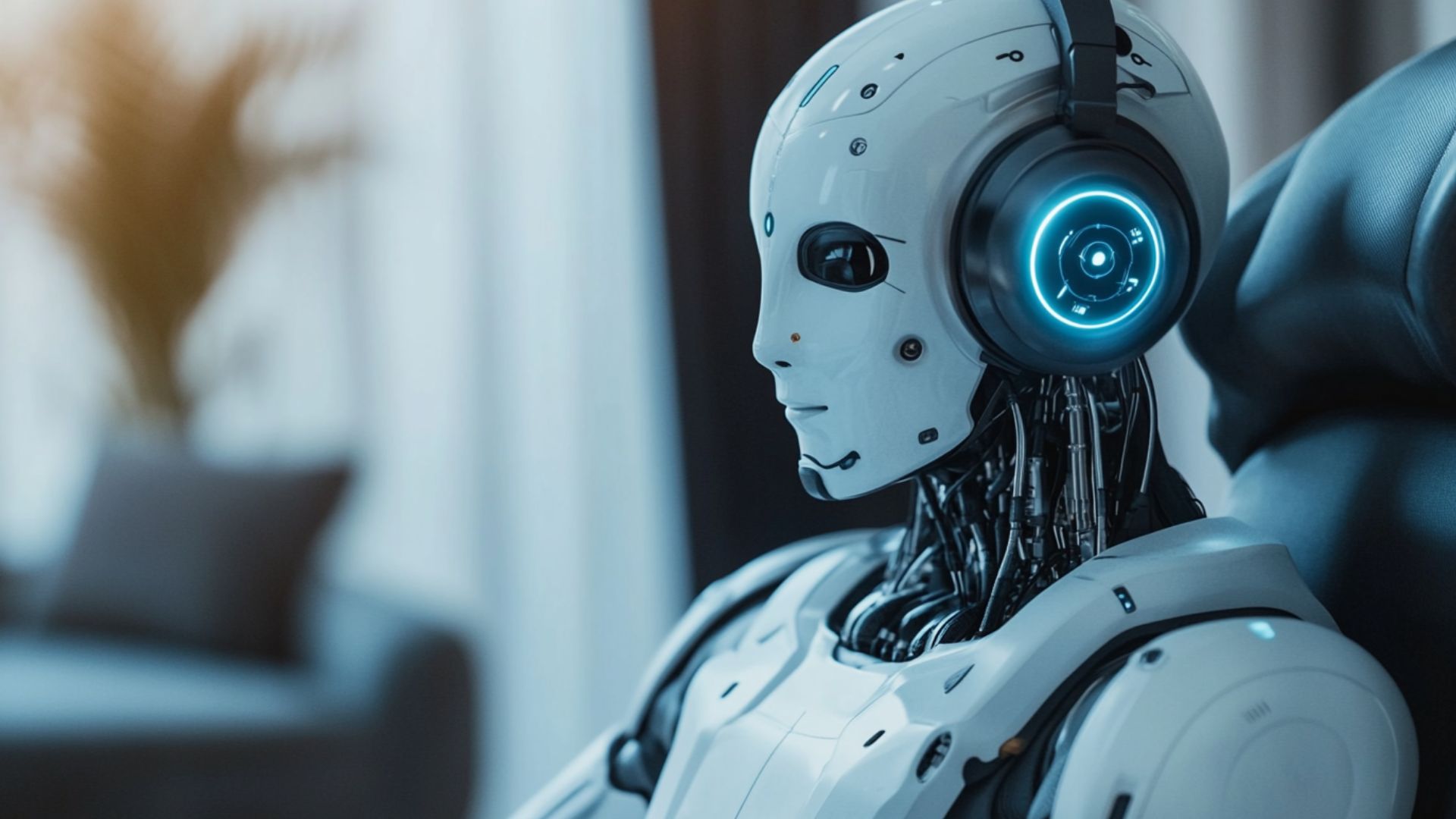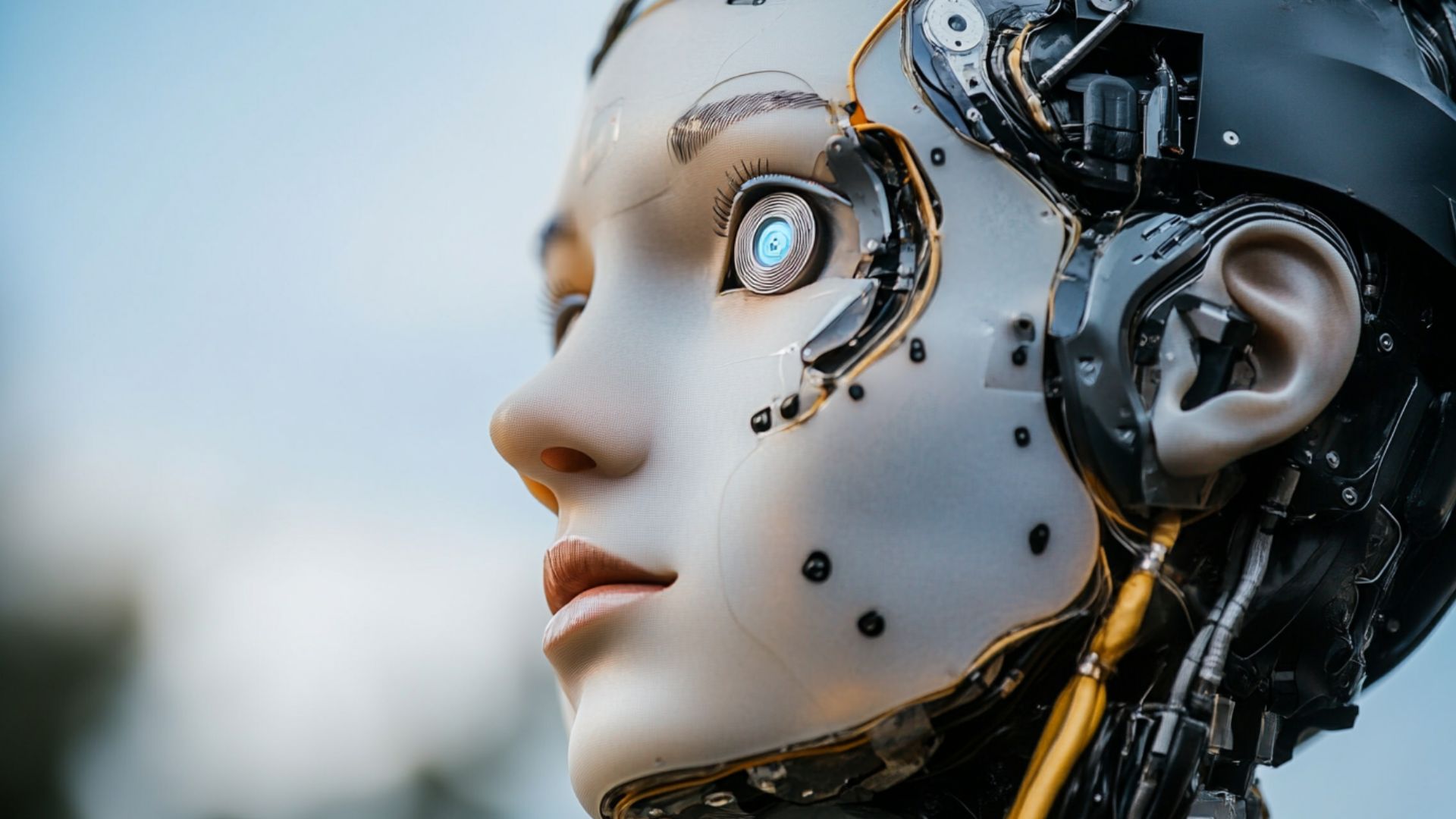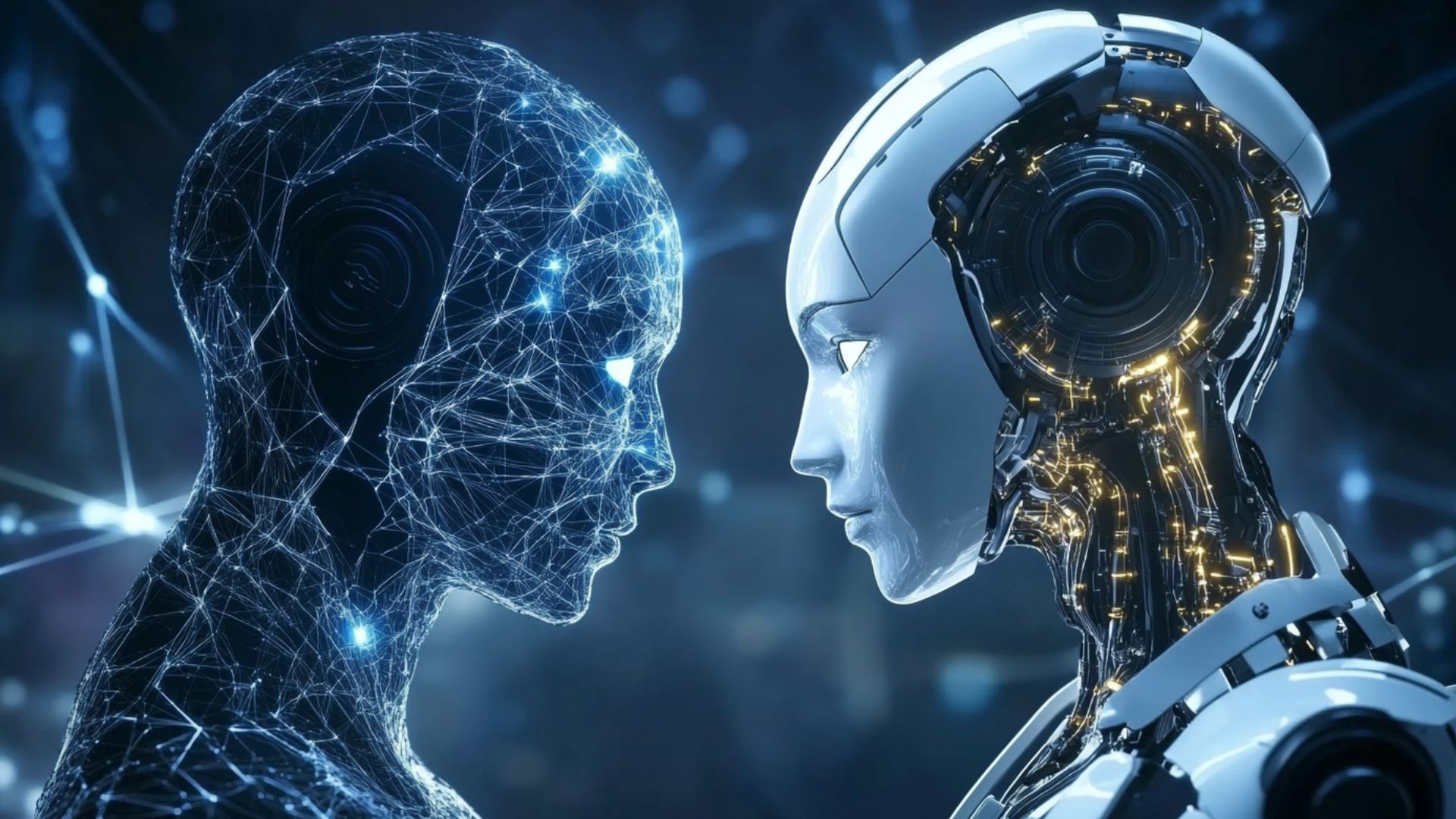What Can AI Do?
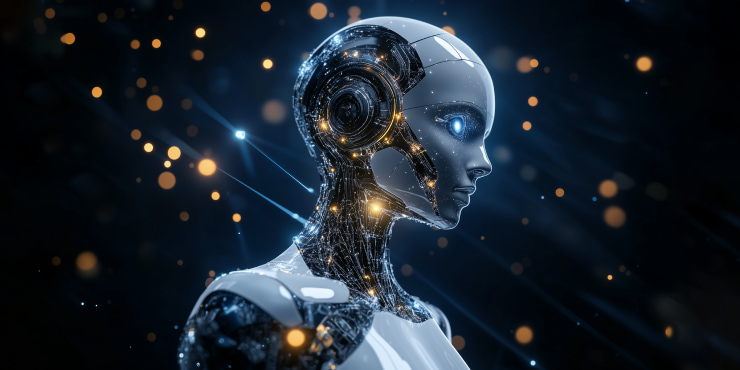
AI technologies have long been an integral part of people’s daily lives. This is not always obvious. Virtual aids are prime examples of this. They represent how AI technologies can support a person in many areas. This technology is known for making life more convenient. AI tools are typically used in literally all areas of life. Their contribution is undeniably great and is growing exponentially. The latest innovations continue to evolve. This is important for understanding how AI works.
Many are unfamiliar with computer science. Trying to understand the many aspects and their implications can be an overwhelming task for them. What can artificial intelligence (AI) do for me? The answer is its ability to improve efficiency, provide insights, and enhance experiences. It happens across various fields. We will explore the key capabilities and applications of AI and highlight its growing influence and potential.
Understanding AI Capabilities
AI is a branch of science that was officially launched in 1956. It happened at a summer seminar at Dartmouth College (Hanover, USA). It was generally organized by four American scientists. AI technologies have revolutionized many industries. Below are things that AI can do and how it processes information.
Let's look at what AI can do:
- Machine Learning (ML): AI learns from data by identifying patterns. It makes predictions without explicit programming.
- Deep Learning (DL): A subset of ML that mimics human brain neural networks. It allows AI to process vast amounts of complex data. These are images and speech.
- Automation: AI-powered systems handle repetitive tasks efficiently. It reduces human workload and improves accuracy.
How does AI process data and make decisions? Let's discuss:
- Data Collection: AI gathers structured and unstructured data. It comes from multiple sources.
- Pattern Recognition: AI analyzes data. It helps to detect trends, anomalies, and relationships.
- Decision-Making: AI uses trained models. They generate insights, recommend actions, and predict outcomes.
There are cool things AI can do:
- Speech Recognition: Popular virtual helpers are Siri and Alexa. They enable voice-controlled operations.
- Computer Vision: AI analyzes images and videos. They are essential for facial recognition, medical imaging, and self-driving cars.
- Predictive Analytics: AI forecasts market trends, stock prices, and client behaviors.
- Natural Language Processing (NLP): AI understands and generates human-like text. It enhances chatbots and automated translations.
- Autonomous Systems: AI controls drones, robots, and smart home devices for real-time decision-making.
- Medical Diagnostics: AI detects diseases in X-rays and MRIs faster than human doctors.
- Fraud Detection: AI safeguards financial transactions by identifying suspicious activities.
AI in Data Processing and Decision Making
AI excels at handling vast amounts of data. They identify trends and make informed decisions. Below are some things that AI can do in data processing and decision-making. Let’s discuss:
| AI Capability | Description | Example |
| Big Data Analysis | AI processes massive datasets quickly. It uncovers patterns that humans might miss. | AI detects fraud by analyzing financial transactions in real time. |
| Predictive Analytics | AI forecasts future trends based on historical data. | Businesses use AI to predict client demand. It also helps to optimize inventory. |
| Recommendation Systems | AI personalized content by analyzing user behavior. | Netflix suggests movies. Amazon recommends products based on past purchases. |
| NLP | AI understands and generates human language. It improves communication. | Chatbots and virtual assistants respond to client queries instantly. |
| Automation & Optimization | AI automates repetitive tasks and improves efficiency. | AI-powered scheduling tools optimize employee shifts in companies. |
These are cool things AI can do to enhance business efficiency. They improve user experience. These advances drive innovation across industries.
AI in Automation and Efficiency
AI-powered robots and software make a real revolution. Automation significantly enhances productivity. It streamlines operations and reduces errors. AI tools also considerably improve efficiency. Below are some examples of what tasks AI can perform in various industries. Let's start with manufacturing:
- AI Process Automation (RPA): AI-driven robots handle repetitive tasks. They are assembling products and packaging.
- Predictive Maintenance: AI analyzes machine data to detect faults before breakdowns occur. It reduces downtime.
- Quality Control: AI-powered cameras inspect products for defects. They ensure high manufacturing standards.
Now, we will explore AI in client service:
- AI Chatbots: Virtual assistants respond to customer queries instantly. They reduce wait times.
- Sentiment Analysis: AI analyzes customer feedback to improve service quality and brand reputation.
- Automated Call Centers: AI-driven voice assistants handle inquiries and process orders. They also assist with troubleshooting.
Here is information about AI in logistics:
- Route Optimization: AI calculates the fastest delivery routes. It reduces fuel costs and improves efficiency.
- Warehouse Automation: AI-powered robots organize, track, and retrieve inventory with high precision.
- Demand Forecasting: AI predicts supply chain needs. It prevents shortages and overstocking.
These cool things to do with AI demonstrate how automation enhances efficiency. I also lower costs and drive innovation across industries.
AI in Everyday Life
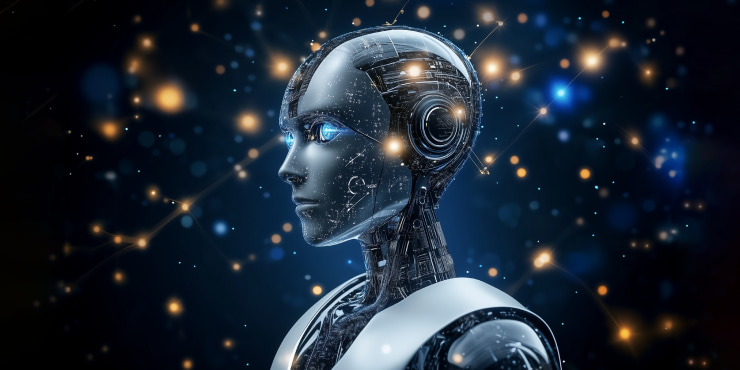
AI technologies are crucial in enhancing convenience. They make daily tasks easier and more efficient. Below are some points that improve modern living. How is AI in communication & personalization? Let's discuss:
- Language Translation: AI-driven tools like Google Translate provide real-time translation. They break language barriers.
- Voice Recognition: AI enables hands-free commands, voice-to-text typing, and secure authentication using biometrics.
- Personalized Ads & Recommendations: AI analyzes user behavior to deliver customized content. It also brings product recommendations and targeted advertisements on platforms. They are Netflix, YouTube, and Amazon.
Let's talk about cool things to do with AI that begin with smart assistants & homes:
- Voice-Controlled Assistants: AI-powered virtual aids are Siri, Alexa, and Google. They help set reminders, play music, and control smart devices.
- Home Automation: AI connects thermostats, security cameras, and lighting systems. It helps to automate home functions.
- Energy Efficiency: AI adjusts heating and cooling systems. They are generally based on usage patterns. These systems reduce energy consumption.
What can AI do and not do? Let's discuss:
- Can Do: AI can analyze massive data sets. It may also automate repetitive tasks. AI technologies may also recognize patterns faster than humans.
- Cannot Do: AI lacks emotional intelligence, creativity, and genuine human intuition. This makes it ineffective for some tasks. They typically require empathy or moral judgment.
What can AI do that humans can’t? Here is what:
- Process Large Data Sets Instantly: AI scans and analyzes millions of data points in seconds. This task is impossible for humans at the same speed.
- Operate 24/7 Without Fatigue: AI-powered systems work continuously without breaks. They enhance productivity.
- Predict Outcomes Based on Patterns: AI anticipates market trends using data-driven insights. It also predicts client preferences and potential failures.
AI continues to shape everyday life. It makes tasks more efficient and enhances user experiences.
AI in Healthcare and Medicine
AI tools are revolutionizing the medical field. They improve diagnostics, treatment planning, and patient care. Below are some ways AI can help us in healthcare.
We will begin with medical imaging and diagnosis:
- AI-Powered Scans: AI analyzes X-rays, MRIs, and CT to detect diseases. The most common are cancer and fractures accurately.
- Early Disease Detection: AI identifies patterns in medical data. They help to diagnose conditions earlier than traditional methods.
- Pathology Assistance: AI examines tissue samples for abnormalities, speeding up lab results.
How is AI being helpful in personalized treatments? Let's explore:
- AI-Driven Drug Discovery: AI accelerates the development of new medicines. It analyzes chemical compounds.
- Genomic Analysis: AI tailors treatments based on a patient’s genetic makeup. They improve precision medicine.
- Health Monitoring: Wearable AI devices track heart rate, blood pressure, and glucose levels. It happens in real-time.
Now, let's discuss AI-assisted patient care with some essential aspects:
- Virtual Health Assistants: AI chatbots provide medical advice and appointment scheduling.
- AI Surgery: AI enhances surgical precision. It also reduces risks and recovery times.
- Predictive Analytics: AI forecasts disease outbreaks and hospital resource needs.
These fun things to do with AI in medicine make healthcare more accurate. It also becomes more efficient and accessible.
AI in Finance and Business
AI tools are transforming the financial industry by enhancing security. It also improves decision-making and automates client interactions. Below are some aspects of AI technologies useful in finance and business. Let's explore ways AI can help us in security:
- Real-Time Fraud Detection: AI analyzes transactions to identify unusual patterns and prevent fraud.
- Biometric Authentication: AI-powered facial and fingerprint recognition enhances security.
- Anomaly Detection: AI flags suspicious activities in banking and credit card transactions.
How is AI useful in stock market predictions? Let's discuss:
- Algorithmic Trading: AI processes vast amounts of market data. It helps to execute trades at optimal times.
- Sentiment Analysis: AI evaluates news articles and social media to predict stock trends.
- Risk Management: AI assesses investment risks and suggests portfolio adjustments.
What are interesting things about AI in automated customer service? Let's discuss:
- AI Chatbots: Virtual assistants handle banking inquiries, loan applications, and account management.
- Voice Assistants: AI-driven phone support improves response times and customer satisfaction.
- Personalized Financial Advice: AI analyzes spending habits to offer budgeting and investment tips.
AI in financial decision-making:
- Credit Scoring: AI evaluates creditworthiness faster and more accurately than traditional methods.
- Loan Approvals: AI streamlines loan application processes. It reduces paperwork.
- Market Forecasting: AI predicts economic trends. It helps businesses make informed decisions.
These innovations in finance enhance security. They also optimize investments and improve client experiences.
AI in Creativity and Innovation
AI is reshaping the creative landscape. It generates original content, assisting artists, and enhancing creative processes. From visual art to music and writing, AI is becoming a powerful tool for innovation. However, there are still things AI can't do. They require human creativity and intuition.
Here's how AI is transforming art and design:
- AI-Generated Artwork: DALL·E creates unique digital paintings and illustrations.
- Style Transfer: AI replicates famous artistic styles. It transforms ordinary images into masterpieces.
- 3D Modeling & Animation: AI assists in designing characters, environments, and animations. They are typically used for games and films.
Is AI useful in music composition? Let's explore:
- AI-Generated Music: AI composes melodies and harmonies for various genres.
- Music Remastering: AI restores old recordings and enhances sound quality.
- AI-Assisted Mixing & Mastering: AI optimizes music production for professional sound quality.
How does AI enhance content writing? Let's discuss:
- Automated Writing: ChatGPT generates articles, scripts, and marketing copy.
- AI-Powered Editing: AI checks grammar, enhances readability, and suggests improvements.
- Storytelling & Scriptwriting: AI drafts narratives, helping writers with creative brainstorming.
What can't AI do? Let's discuss:
- True Originality: AI creates based on patterns but lacks human imagination.
- Emotional Depth: AI-generated content may miss the emotional nuances of human creativity.
- Personal Experiences: AI cannot replicate the lived experiences that inspire human art.
AI is a powerful tool for assisting creativity. Human artists bring depth, meaning, and emotion to art. AI enhances creative possibilities. True artistic innovation remains a uniquely human trait. So, should we adopt A.I.? Certainly, yes.
Ethical Concerns and Challenges of AI
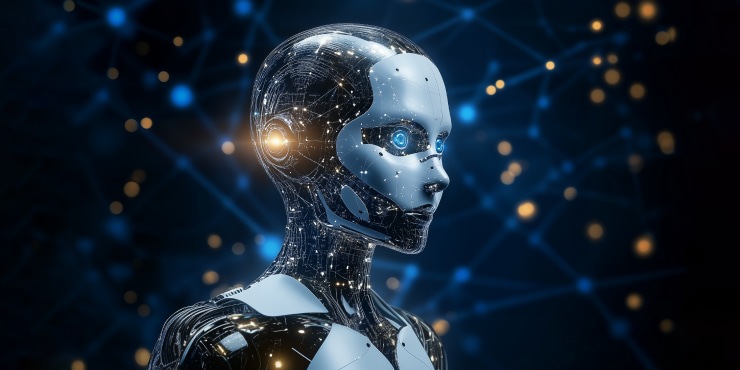
AI technology advances. They raise several ethical concerns related to fairness, security, and societal impact. AI tools offer capabilities that enhance efficiency and innovation. They also present challenges that must be responsibly addressed.
Let's discuss bias and fairness issues:
- Algorithmic Bias: Cool AI stuff can reinforce societal offset present in training data. They lead to unfair outcomes.
- Discrimination in Hiring & Lending: AI-powered decision-making may unintentionally favor certain groups over others.
- Lack of Transparency: Many AI models function as "black boxes." They make it difficult to understand how decisions are typically made.
Le'ts discuss AI in data privacy and security risks:
- Mass Data Collection: AI systems rely on vast amounts of personal data. They raise privacy concerns.
- Cybersecurity Threats: AI can be exploited for hacking, deep fakes, and misinformation campaigns.
- Surveillance & Ethical Concerns: AI-powered facial recognition raises questions about privacy and civil rights.
Now, we will talk about automation and job displacement:
- AI Replacing Human Jobs: Automation threatens jobs in manufacturing, retail, and customer service.
- Need for Reskilling: Workers must adapt to new roles. They require human judgment and creativity.
- Economic Inequality: AI-driven automation may disproportionately impact lower-income workers.
Should we adopt A.I.? Undoubtedly, yes. AI has the potential to revolutionize industries. It significantly improves productivity, streamlining processes, and automating repetitive tasks. AI allows businesses to operate more efficiently. In healthcare, it enhances medical diagnostics, accelerates drug discovery. AI also improves personalized treatments. It leads to better patient outcomes. AI fuels innovation by driving advancements in finance, and creative industries. However, to fully harness its benefits, it must be responsibly developed with strong ethical guidelines. This ensures fairness, protects data privacy, and safeguard job security in an evolving workforce.
What are AI's limitations? Here are some key examples:
- Moral Judgment: AI lacks ethics and human intuition in decision-making.
- Emotional Intelligence: AI cannot fully understand or respond to human emotions like empathy.
- Independent Reasoning: AI follows patterns and rules but does not possess true self-awareness.
AI offers exciting possibilities. Ethical guidelines and regulations are essential to ensure responsible use.
The Future of AI: What Lies Ahead?
The next decade will bring groundbreaking advancements across various fields. As technology improves, everyone is going to AI. It will transform space exploration, biotechnology, and climate science. Let's talk about AI tools in space exploration:
- Autonomous Spacecraft: AI will assist in piloting and navigating space missions requiring minimal human intervention.
- Extraterrestrial Research: AI will analyze planetary data, search for signs of life. It will also optimize rover missions on Mars and beyond.
- AI-Driven Space Manufacturing: AI could play a role in building structures in space. It uses 3D printing and automation.
Now, we will discuss AI in biotechnology and healthcare:
- AI-Powered Drug Discovery: AI will accelerate the creation of new medicines. It analyzes vast chemical and genetic datasets.
- Genetic Engineering & CRISPR: AI will refine gene-editing techniques. It leads to potential cures for genetic disorders.
- AI-Enhanced Surgical Procedures: More precise, AI-assisted AI procedures will improve surgical outcomes. They will also reduce recovery times.
AI also plays a role in climate change solutions:
- Predictive Climate Models: AI will improve weather forecasting and disaster preparedness.
- AI-Optimized Renewable Energy: AI will enhance the efficiency of solar panels, wind farms, and smart grids.
- Carbon Capture & Environmental Monitoring: AI will track pollution levels. It also will develop solutions for reducing emissions.
There will be many fun things to do with AI. It is rapidly evolving. The next decade will bring groundbreaking advancements across various fields. As technology improves, everyone is going to AI. Integrating it into space exploration, biotechnology, and climate science will be crucial. AI will become deeply integrated into everyday life, industries, and scientific advancements. Ethical considerations will be crucial. Governments, businesses, and researchers must ensure AI is responsibly developed. It will prevent bias, protect privacy, and balance automation with job security. Focusing on ethical AI is crucial. We can harness its full potential. Do you want to know what AI will look like in the future? For more information about AI's future, visit our website.
